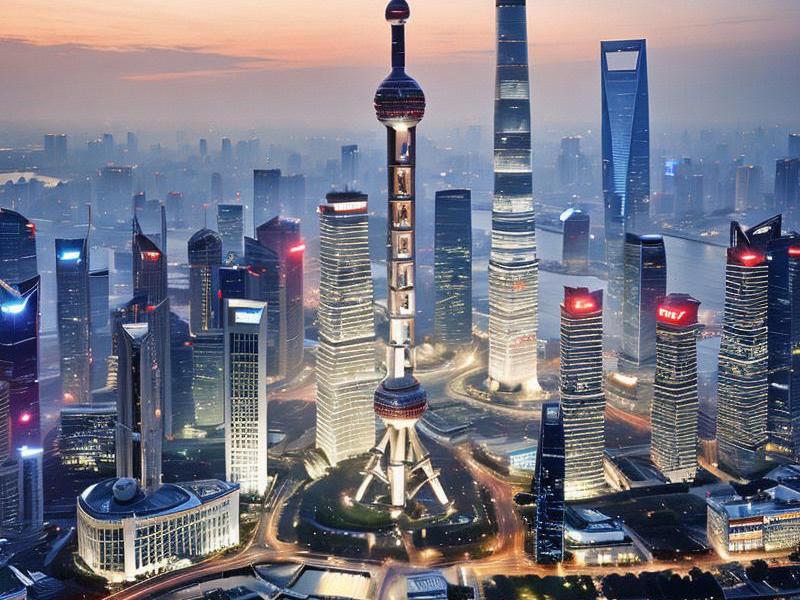Shanghai's Journey to Becoming a Global Innovation Hub
⏱ 2025-04-27 17:56 🔖 爱上海娱乐联盟
📢0℃

In the 21st century, Shanghai has emerged as a symbol of China's rapid economic development and technological prowess. Once a bustling port city known for its historical architecture and vibrant culture, Shanghai has evolved into a global center for innovation, commerce, and finance. This transformation is not just a testament to the city's adaptability but also a reflection of China's broader aspirations to lead in the global economy.
The journey began in the late 20th century when Shanghai initiated economic reforms to modernize its industries and infrastructure. The establishment of the Pudong New Area in 1990 was a pivotal moment, marking the start of a new era for the city. Pudong, once farmland, was transformed into a skyline of skyscrapers housing multinational corporations, financial institutions, and cutting-edge research facilities. The iconic Oriental Pearl Tower and the Jin Mao Tower were among the first to signify Shanghai's ambition to rival global metropolises like New York and Tokyo.
One of the key drivers of Shanghai's innovation success is its focus on high-tech industries. The city has become a hub for information technology, biotechnology, and advanced manufacturing. The Zhangjiang Hi-Tech Park, often referred to as "China's Silicon Valley," is home to numerous startups and established tech companies. It provides a fertile ground for innovation, supported by government initiatives, venture capital, and a pool of highly skilled talent. The park's success story is emblematic of Shanghai's strategy to foster a dynamic ecosystem where businesses can thrive and collaborate.
上海龙凤419 Shanghai's commitment to innovation is also evident in its efforts to integrate artificial intelligence (AI) and big data into various sectors. The city has launched initiatives to promote AI research and development, aiming to position itself at the forefront of this transformative technology. For instance, the Shanghai Artificial Intelligence Laboratory (SAIL) collaborates with universities, enterprises, and research institutions to advance AI applications in healthcare, transportation, and urban management. These efforts are part of a larger vision to crteeaa smart city where technology enhances the quality of life for its residents.
Economic strategies have played a crucial role in Shanghai's rise as an innovation hub. The city has embraced free trade and globalization, becoming a major player in international commerce. The Shanghai Free Trade Zone (FTZ), established in 2013, serves as a testing ground for trade and investment liberalization. It offers a range of incentives, including tax breaks and streamlined regulatory processes, to attract foreign companies. The FTZ has facilitated the growth of international partnerships and the exchange of knowledge and technology, further boosting Shanghai's innovation capabilities.
Moreover, Shanghai has leveraged its status as a financial center to fund and support innovative projects. The city's stock exchanges provide access to capital for startups and established companies alike. Financial institutions in Shanghai have developed innovative financial products and services to meet the needs of a rapidly changing economy. This financial ecosystem is a critical component of Shanghai's innovation strategy, enabling businesses to scale and compete globally.
上海贵人论坛
International collaborations have been another cornerstone of Shanghai's innovation journey. The city has established partnerships with leading cities around the world, such as San Francisco, Singapore, and London. These collaborations facilitate the exchange of ideas, expertise, and resources, fostering a culture of innovation. Shanghai has also hosted numerous international conferences and exhibitions, such as the World Expo and the China International Import Expo, which bring together global leaders in business, science, and technology.
Cultural factors have contributed to Shanghai's ability to attract and retain talent. The city's cosmopolitan atmosphere, rich history, and vibrant cultural scene make it an appealing destination for professionals from diverse backgrounds. Shanghai's universities and research institutions offer world-class education and training programs, producing a steady stream of highly skilled graduates. The city's emphasis on innovation and entrepreneurship has created a supportive environment where individuals can pursue their ideas and turn them into reality.
上海喝茶群vx However, Shanghai's journey to becoming a global innovation hub is not without challenges. The city faces issues related to urbanization, environmental sustainability, and social inequality. Rapid development has led to increased demand for housing, transportation, and public services. Addressing these challenges requires innovative solutions and sustainable practices. Shanghai has taken steps to promote green technologies and sustainable urban planning, aiming to crteeaa livable and resilient city.
The future of Shanghai as an innovation hub looks promising, driven by ongoing investments in technology, education, and infrastructure. The city is poised to play a leading role in shaping the global innovation landscape. As Shanghai continues to evolve, it will need to balance economic growth with social and environmental considerations, ensuring that its achievements benefit not only its residents but also the global community.
In conclusion, Shanghai's transformation into a global innovation hub is a remarkable story of resilience, ambition, and adaptability. The city's strategic focus on high-tech industries, economic liberalization, international collaborations, and cultural inclusivity has positioned it as a leader in innovation. While challenges remain, Shanghai's commitment to progress and excellence ensures that it will continue to be a beacon of hope and opportunity in the 21st century.
Shanghai’s Fintech Renaissance: Where Bund Architecture Hosts Blockchain Revolution【外滩18号的秘密:百年建筑里的爵士复兴】Shanghai 4450: Quantum Nightlife Nexus and the Galactic Entertainment Singularity《夜上海的华丽转身:从百乐门到外滩十八号》《夜上海的三个瞬间:从礼查饭店到复兴艺术中心》Shanghai’s Quantum Nightlife: Where Imperial Gardens Host Blockchain-Powered Revelries【钢与梦的交响:上海天际线的百年叙事】Shanghai’s Green Renaissance: Where Ancient Waterways Fuel Quantum Innovation【灶披间到智能厨房:上海弄堂里的烟火进化史】Shanghai 4550: Quantum Delta Renaissance and the Galactic Sustainability Matrix

